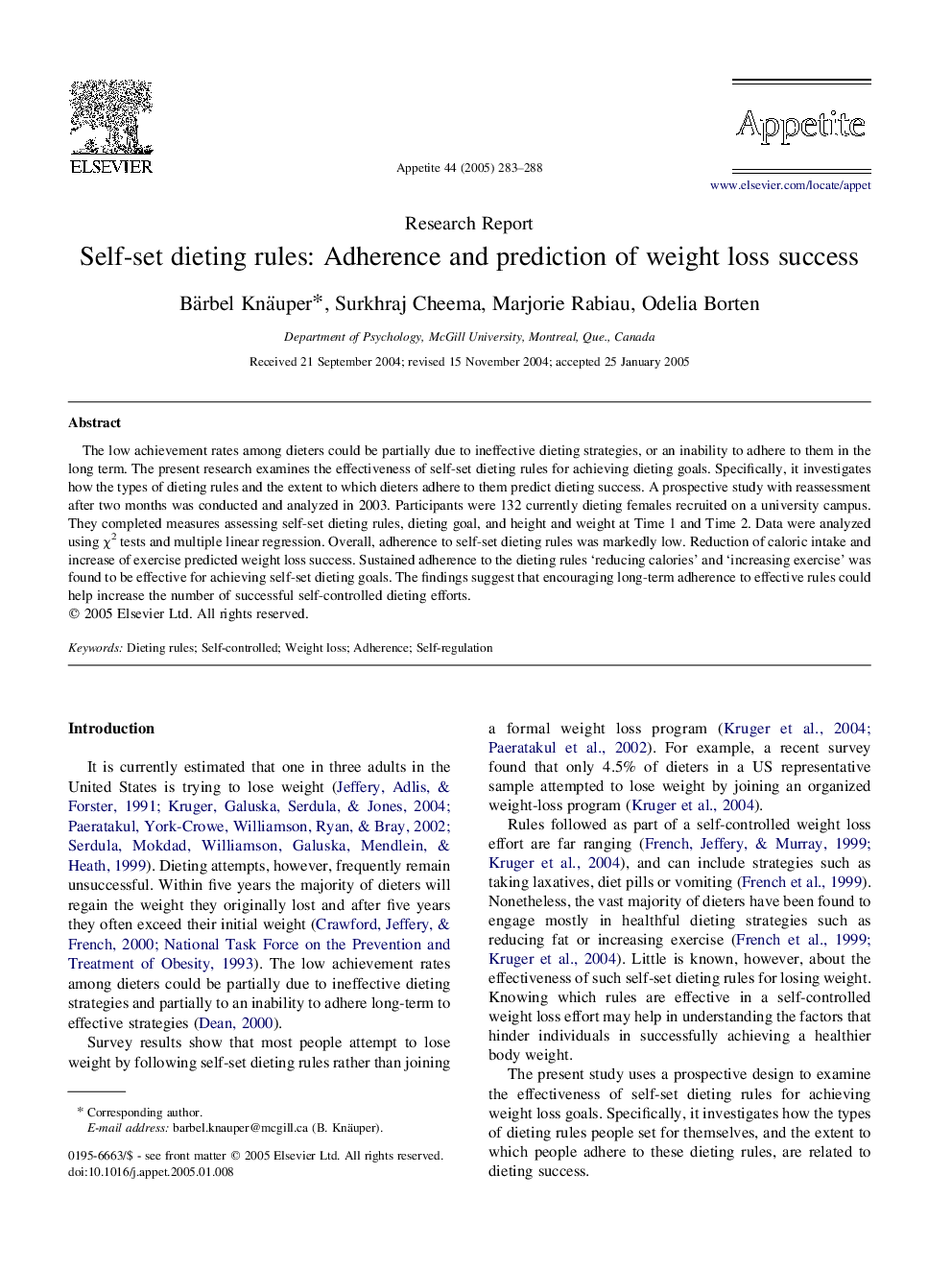| Article ID | Journal | Published Year | Pages | File Type |
|---|---|---|---|---|
| 10462743 | Appetite | 2005 | 6 Pages |
Abstract
The low achievement rates among dieters could be partially due to ineffective dieting strategies, or an inability to adhere to them in the long term. The present research examines the effectiveness of self-set dieting rules for achieving dieting goals. Specifically, it investigates how the types of dieting rules and the extent to which dieters adhere to them predict dieting success. A prospective study with reassessment after two months was conducted and analyzed in 2003. Participants were 132 currently dieting females recruited on a university campus. They completed measures assessing self-set dieting rules, dieting goal, and height and weight at Time 1 and Time 2. Data were analyzed using Ï2 tests and multiple linear regression. Overall, adherence to self-set dieting rules was markedly low. Reduction of caloric intake and increase of exercise predicted weight loss success. Sustained adherence to the dieting rules 'reducing calories' and 'increasing exercise' was found to be effective for achieving self-set dieting goals. The findings suggest that encouraging long-term adherence to effective rules could help increase the number of successful self-controlled dieting efforts.
Keywords
Related Topics
Life Sciences
Agricultural and Biological Sciences
Food Science
Authors
Bärbel Knäuper, Surkhraj Cheema, Marjorie Rabiau, Odelia Borten,
